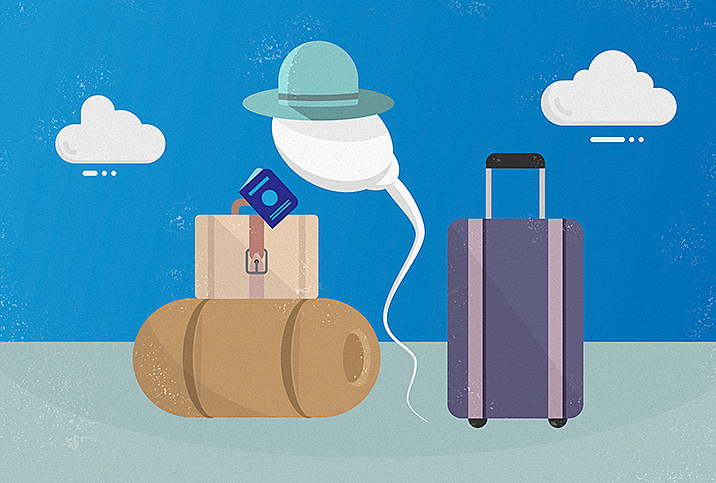Say Goodbye to Your Sperm, Not Your Sex Life

A vasectomy—also known as male sterilization—is a surgical procedure performed on men that involves cutting the tube (vas deferens) that carries sperm from the testicles, thus stopping sperm from reaching the penis. You can still ejaculate after a vasectomy, but your semen will not contain sperm, making this a nearly 100 percent effective form of birth control.
This simple and quick outpatient surgery will have you back home the same day. You can choose between two different types of procedures: the incision method and the no-cut, or no-scalpel, method. While the no-cut method lowers the risk of infection and usually takes less time to heal, both types generally come with a low risk of complications.
Though side effects are rare, some men have experienced bleeding inside the scrotum, blood in the semen, swelling and mild pain and discomfort immediately after surgery. Delayed complications may include chronic pain, fluid buildup in the testes and inflammation due to leaking sperm.
Following a vasectomy, you have two incisions or punctures that need to heal and you should wait until you no longer experience pain or swelling around the site before you resume sex; most men recover within a week or two after surgery. Having sex right after the surgery could potentially reopen the incisions and allow bacteria in, possibly causing an infection.
How will a vasectomy affect my sex life?
Having a vasectomy will not lower your sex drive or testosterone levels, and the procedure does not interfere with the nerves or blood vessels required for achieving an erection. You'll still be able to reach orgasm and ejaculate, too. Interestingly, many men have said they experienced an improvement in sexual satisfaction following their vasectomy, perhaps owing to the relaxation that comes with not worrying about an unplanned pregnancy, according to a 2017 survey published in the Central European Journal of Urology.
Even after the procedure, you won't notice a change in your semen, because only 5 to 10 percent of the ejaculate originates in the testicle, with the rest coming from the prostate and seminal vesicles. The color and consistency of your semen will stay the same, but microscopically, there will be no sperm in it.
A vasectomy does not provide immediate protection against pregnancy, because sperm remains in the ejaculate for a while. Before you have sex without a condom or female birth control, you will need to wait several months and ejaculate 15 to 20 times so sperm is cleared from your semen. Use condoms when you have sex until your doctor confirms there is no longer sperm in your semen.
Are there other conditions associated with a vasectomy?
While previous studies have seemed to indicate that a vasectomy may increase your risk of prostate cancer and dementia, more conclusive studies using data from 1982 to 2012 have found little evidence to support these claims. Although a vasectomy carries a risk of complications and side effects like any surgery, it has not been linked to any serious health problems.
Can a vasectomy be reversed?
Many men choose to get a vasectomy because they don't want to have children, but they might change their minds later. While it is possible to reverse a vasectomy, this isn't a 100 percent guarantee that fertility will be restored because reversal surgery is more complex and costly than a vasectomy, and it is sometimes ineffective.
A vasovasostomy and a vasoepididymostomy are the two kinds of reversal procedures. A vasovasostomy reconnects the two ends of the vas deferens, the tube that transports sperm out of the testicle. The vasoepididymostomy reconnects the epididymis, the part of the sperm duct atop each testicle, to the vas deferens.
Is a vasectomy right for me?
If you do not want children, a vasectomy is the most reliable form of birth control available. It's less likely to cause complications than a woman having her tubes tied, and the one-time cost may even be covered by your health insurance. If you're paying out of pocket, you might pay up to $1,000 for the procedure.
Remember that getting a vasectomy has no impact on your ability to have and enjoy sex. Everything will be the same except now you don't have to worry about an accidental pregnancy. You're not totally out of the woods, though. A vasectomy does not offer protection from sexually transmitted infections (STIs), so you should still use condoms if you're not in a monogamous sexual relationship.


















